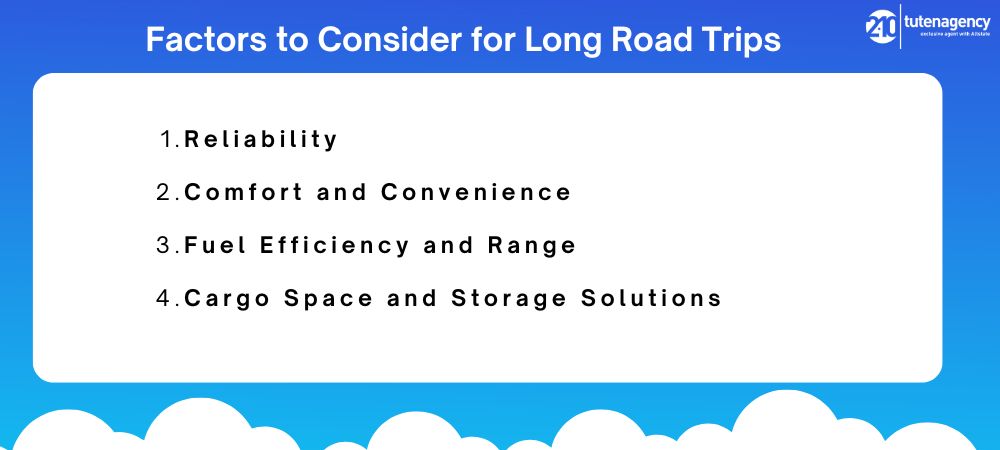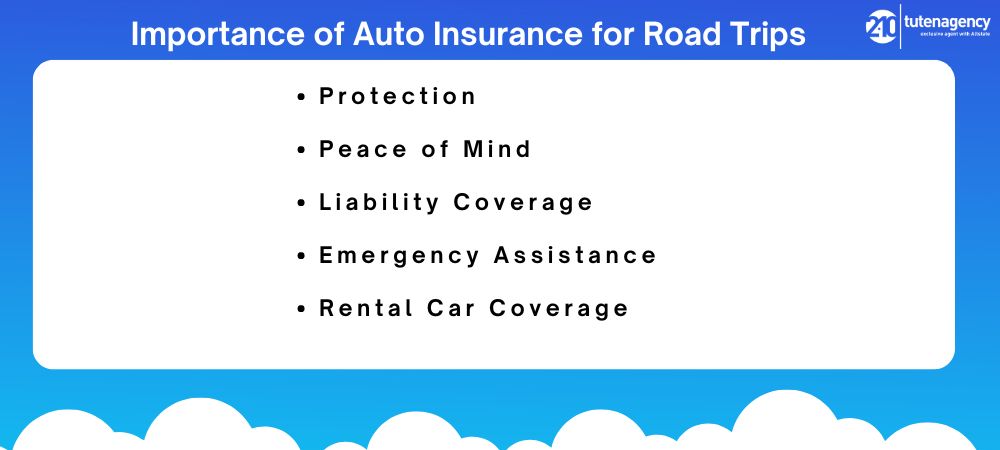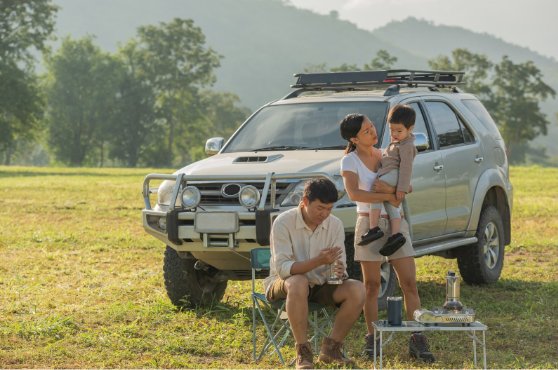If you’re someone who enjoys traveling off the beaten path and embarking on adventurous road trips, then choosing the best car becomes crucial. While packing appropriately and planning your route are important, having a reliable and suitable vehicle can make all the difference in ensuring a smooth and enjoyable journey.
In this article, we will explore the qualities you should consider when selecting a car for long road trips and the essential preparations you need to make before hitting the road.
Factors to Consider for Long Road Trips
When it comes to selecting the ideal car for long road trips, there are several key factors to consider. While no car is perfect in every aspect, understanding these factors will help you decide based on your specific needs and preferences.
Ensure It Can Make the Drive
One of the most critical factors to consider is the car’s reliability. Long road trips put additional strain on a vehicle, so choosing a car with a proven track record of dependability and high manufacturing standards is important. Before embarking on your trip, ensure that your car undergoes a thorough servicing.
Additionally, if you plan to explore off-road areas or mountainous regions, consider a four-wheel-drive vehicle with a sturdy suspension and high ground clearance.
Comfort and Convenience
While reliability is essential, the comfort and convenience of the car should be noticed. A spacious seating arrangement, adjustable seats, and climate control are features that can greatly enhance the overall experience during long hours on the road. Additionally, consider the technology and infotainment systems available in the car, as these can provide entertainment and keep boredom at bay.

Fuel Efficiency and Range
Fuel efficiency is a significant consideration, especially with the rising cost of gas. Opting for a car with good fuel efficiency and a long driving range can minimize the number of fuel stops required during your road trip. Smaller and lighter cars such as sedans, coupes, or hatchbacks can be practical and fuel-efficient for solo or two-person trips.
In recent years, hybrid and electric vehicles have also become viable options, as the growing network of charging stations makes them more suitable for road trips than ever before.
Cargo Space and Storage Solutions
Ample cargo space and innovative storage solutions are essential when packing for a road trip. Depending on the duration of your trip and the nature of your destinations, you may need to bring camping gear or other essentials. While vehicles like Land Rovers offer generous packing space, consider your specific needs and avoid choosing a vehicle that is larger than necessary.
When preparing for a road trip, the essentials you pack can vary widely depending on your destination, activities planned, and the length of your trip. Here’s a comprehensive list of items you might consider bringing along, ensuring you’re well-prepared for any adventure:
- Navigation Tools: GPS device, road maps, and travel guidebooks.
- Emergency Kit: First aid kit, flashlight, batteries, multi-tool, and emergency contact numbers.
- Vehicle Essentials: Spare tire, jack, jumper cables, tire pressure gauge, and extra car fluids (oil, coolant).
- Comfort Items: Travel pillows, blankets, sunglasses, and sunscreens.
- Clothing and Personal Items: Weather-appropriate clothing, hats, comfortable footwear, toiletries, and personal medications.
- Food and Water Supplies: Snacks, bottled water, a cooler for perishables, and reusable water bottles.
- Entertainment: Books, magazines, downloaded movies or music, and travel games.
- Tech Gadgets: Smartphone, camera, portable charger, and power inverter.
- Outdoor Gear: Depending on your activities – camping gear (tent, sleeping bags), hiking boots, swimwear, or fishing equipment.
- Miscellaneous: Trash bags, paper towels, reusable shopping bags, and a notebook or journal.
Safety Features for Peace of Mind
Safety should always be a top priority during road trips. Look for cars equipped with advanced driver-assistance systems, blind-spot monitoring, adaptive cruise control, and other safety features. Additionally, consider adding safety add-ons to your vehicle, such as back cameras and collision detection systems, to enhance your safety on the road further.
Remember, safe driving practices are just as important as the features the car offers.
Reliability and Maintenance
Before embarking on a long road trip, ensuring that your vehicle is reliable and well-maintained is crucial. Check the vehicle’s maintenance history and conduct a thorough inspection. Replace air filters and check tire pressure, oil levels, and brakes to ensure a smooth and stress-free journey.
Taking care of your vehicle will help you avoid unexpected breakdowns and enjoy your road trip to the fullest.
What Should I Do to Prepare My Car for a Long Trip?
To prepare your car for a long road trip, follow this checklist of essential maintenance tasks:
- Check or change the oil and other fluids.
- Replace worn-out windshield wipers.
- Inspect and adjust tire pressure.
- Check the condition of your tires for any signs of wear or damage.
- Test the headlights, taillights, and turn signals.
- Ensure all necessary documents, such as registration and insurance, are up to date.
- Consider having a qualified mechanic do a comprehensive inspection of your vehicle.
- Clean your car’s interior thoroughly before the trip, ensuring a fresh and comfortable environment.
Completing these tasks can minimize the risk of unexpected breakdowns and ensure a trouble-free journey.

Why is Auto Insurance Important for Road Trips?
Having adequate auto insurance coverage is crucial for road trips. Here’s why:
- Protection: Auto insurance provides financial protection in case of accidents, theft, or damage to your vehicle during the road trip.
- Peace of Mind: Knowing that you have insurance coverage gives you peace of mind during your road trip, allowing you to focus on enjoying the journey.
- Liability Coverage: Auto insurance also provides liability coverage in case you cause an accident that results in injuries or property damage to others. This coverage protects you from potential legal and financial consequences.
- Emergency Assistance: Some auto insurance policies offer roadside assistance and towing services, which can be invaluable if you experience a breakdown or other car troubles during your road trip.
- Rental Car Coverage: If your car becomes inoperable during the trip, some insurance policies offer coverage for rental cars, ensuring that you can continue your journey without major disruptions.
Before embarking on your road trip, review your auto insurance policy to ensure it provides adequate coverage for your needs. Consider adding any necessary additional coverage, such as comprehensive or collision coverage, if required.
Conclusion
Choosing the right car for a long road trip is essential to ensure a comfortable, safe, and enjoyable journey. Consider factors such as reliability, comfort, fuel efficiency, cargo space, and safety features when making your decision. Additionally, prepare your vehicle adequately by following a maintenance checklist and obtaining proper auto insurance coverage.
By taking these steps, you can confidently embark on your road trip, knowing that you have made the necessary preparations for a memorable adventure.
FAQs
What type of car is best for off-road adventures during road trips?
For off-road adventures, choosing a four-wheel-drive vehicle with sturdy suspension, high ground clearance, and robust off-road capabilities is recommended. SUVs and trucks, such as the Toyota 4Runner or Jeep Wrangler, are popular choices due to their ruggedness and ability to tackle challenging terrains. These vehicles provide the necessary traction and durability needed for off-road exploration.
Are hybrid or electric vehicles suitable for long road trips?
Yes, hybrid and electric vehicles have become increasingly suitable for long road trips. With advancements in technology and the growing network of charging stations, EVs like the Tesla Model 3 or hybrid cars like the Toyota Prius offer extended driving ranges and efficient fuel consumption. They provide a greener and more cost-effective option for road trippers while still offering the necessary comfort and convenience features.
What are some essential safety features to look for in a road trip car?
When selecting a car for a road trip, prioritize vehicles equipped with advanced safety features such as lane departure warning, forward collision warning, automatic emergency braking, and adaptive cruise control. These features enhance driver awareness, reduce the risk of accidents, and provide an extra layer of security during long road hours. Additionally, vehicles with a high safety rating from organizations like the Insurance Institute for Highway Safety (IIHS) and the National Highway Traffic Safety Administration (NHTSA) are worth considering.
Is it necessary to have auto insurance coverage for a road trip?
Yes, having auto insurance coverage is essential for road trips. It provides financial protection in case of accidents, theft, or damage to your vehicle. Ensure that your insurance policy offers adequate coverage for long-distance travel and consider additional options, such as roadside assistance or rental car coverage, to address any unforeseen circumstances.
Review your policy details and contact your insurance provider to discuss your specific needs before embarking on your road trip.
Disclaimer: This content is for informational purposes only and should not be considered financial advice. Always consult with a qualified financial advisor before making any investment decisions.

